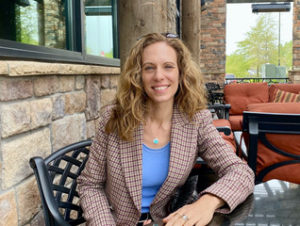New course on campus: “Antisemitism from Antiquity to today”
4 min read
Starting in the fall of 2023, UMW will be offering a new course in the Modern Language and Literature department. The course, “Antisemitism from Antiquity to today,” will focus on the continued persecution and hatred faced by Jewish communities around the world and its impact on various points of life.
by MARGARET JACKSON
Staff Writer
Starting in the fall of 2023, UMW will be offering a new course in the modern languages and literatures department. The course, “Antisemitism from Antiquity to today,” will focus on the continued persecution and hatred faced by Jewish communities around the world and its impact on various points of life. The course will examine antisemitism through political, social, economic and cultural contexts, both past and present.
The course, which will be taught by Associate Professor of German Jennifer Hansen-Glucklich, will review opinion articles, scholarly journals, documentaries and several case studies to explore the roots of antisemitism and how it is still prevalent today.
“Ultimately, I hope this class will have a strong practical dimension—that is, that it will help students identify, understand, and fight against antisemitism as well as reflect more broadly on their responsibility as U.S. citizens toward all minority groups,” she said. The course will fulfill the diverse and global perspectives of the general education requirement “in order to attract as many students as possible.”
Though it targets the Jewish community, which makes up about 2.4% of the U.S. adult population, Hansen-Glucklich said, “antisemitism isn’t just a problem for Jews.” It is one of the longest-lasting forms of social hatred and has widespread effects.
“Unlike many other forms of bigotry, antisemitism is not merely a social prejudice: it is a conspiracy theory about how the world operates,” she said. “Anti-semitism, therefore, isn’t just about bigotry towards the Jewish community; rather, it utilizes bigotry to deconstruct democratic practices, framing democracy itself as a conspiracy. The more people embrace antisemitism and buy into its understanding of the world, the more they lose faith in democracy.”
Students are looking forward to closely examining antisemitism throughout the course.
“I feel like this course could be helpful to shine a light on an unpleasant history,” said freshman conservation biology major Cam Fleischman. “I think it’s an important part of history that’s not mentioned.”
Jewish Student Association President Shauna Kaplan, a senior communication and digital studies major, is also glad this course will be taught.
“I am excited that there is an opportunity for people to learn about the expansive history of Antisemitism,” she said. “Every time a new course on a subject such as this is added, I think it is a win for the associated marginalized group. There are, of course, parts of me that are nervous about any antisemitic backlash that could come about due to the publicness of the course.”
This course, Kaplan said, comes at a time when antisemitic incidents have happened on campus.
“Unfortunately, there have been two instances of groups of antisemitic Yik Yaks throughout the year in this community,” she said. “This has been very overwhelming and distressing for a lot of the Jewish Students. In addition, during my first two years on campus, we would often see Patriot Front stickers up around campus.”
Hansen-Glucklich also noted that antisemitism is present at UMW.
“Our own campus, unfortunately, is not immune to antisemitism: disturbing antisemitic messages have been recently shared on Yik Yak,” she said.
Other acts of antisemitism have also hit close to home for Hansen-Glucklich.
“During the ‘Unite the Right Rally’ in Charlottesville in 2017, white supremacists chanted ‘Jews will not replace us’ and ‘Sieg Heil’ while marching past the synagogue my husband and I used to belong to, Congregation Beth Israel,” she said. “Just one year later, in 2018, eleven people were killed in a terrorist attack on the Tree of Life Synagogue in Pittsburgh.”
Both in the U.S. and abroad, there has been a recent rise in antisemitic behavior. According to the Anti-Defamation League, antisemitic incidents reached an all-time high in the U.S. in 2021, and while official numbers for 2022 have not yet been released, the League predicts that they will be similar.
Hansen-Glucklich began thinking of designing this course after researching antisemitic behavior for various lectures she was giving on the subject. It was through this research that she became aware of just how extensive this issue is.
“I had, of course, already been aware of rising antisemitism both here in the U.S. and abroad, but it was while I was conducting research … that I realized to what extent this has become a very serious problem. I am deeply worried by recent antisemitic activity and violence.”
Hansen-Glucklich said she felt supported throughout the approval process for the course. “The process of getting approval was quick and painless—the committee, led by Professor Marc Williams, was incredibly supportive and encouraging,” she said.
Kaplan hopes that the course will be designed with various perspectives in mind.
”The university needs to make sure that the content feels sensitive to the experiences of these groups while also giving the full story so others can learn,” she said.
With the rise in antisemitism, this course comes at an important time in history, Hansen-Glucklich said.
“This is a crucial moment in our history—intolerance against many marginalized groups, white nationalism, and support of the ‘great replacement’ theory are increasing, and we have seen recent threats to our democratic institutions,” she said. “It is important to stop at this moment and think about what kind of society we want to be, and what we can do as individuals to help achieve that vision.”
Correction: Due to editor error, a previous version of this article said the course would be taught in the English department. It is being taught in the modern languages and literatures department. This has been corrected.


